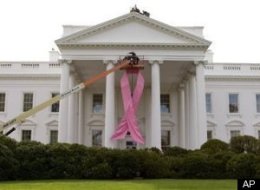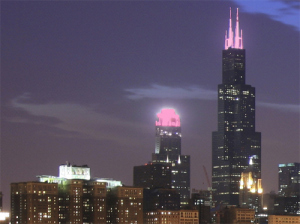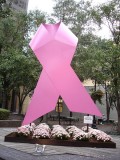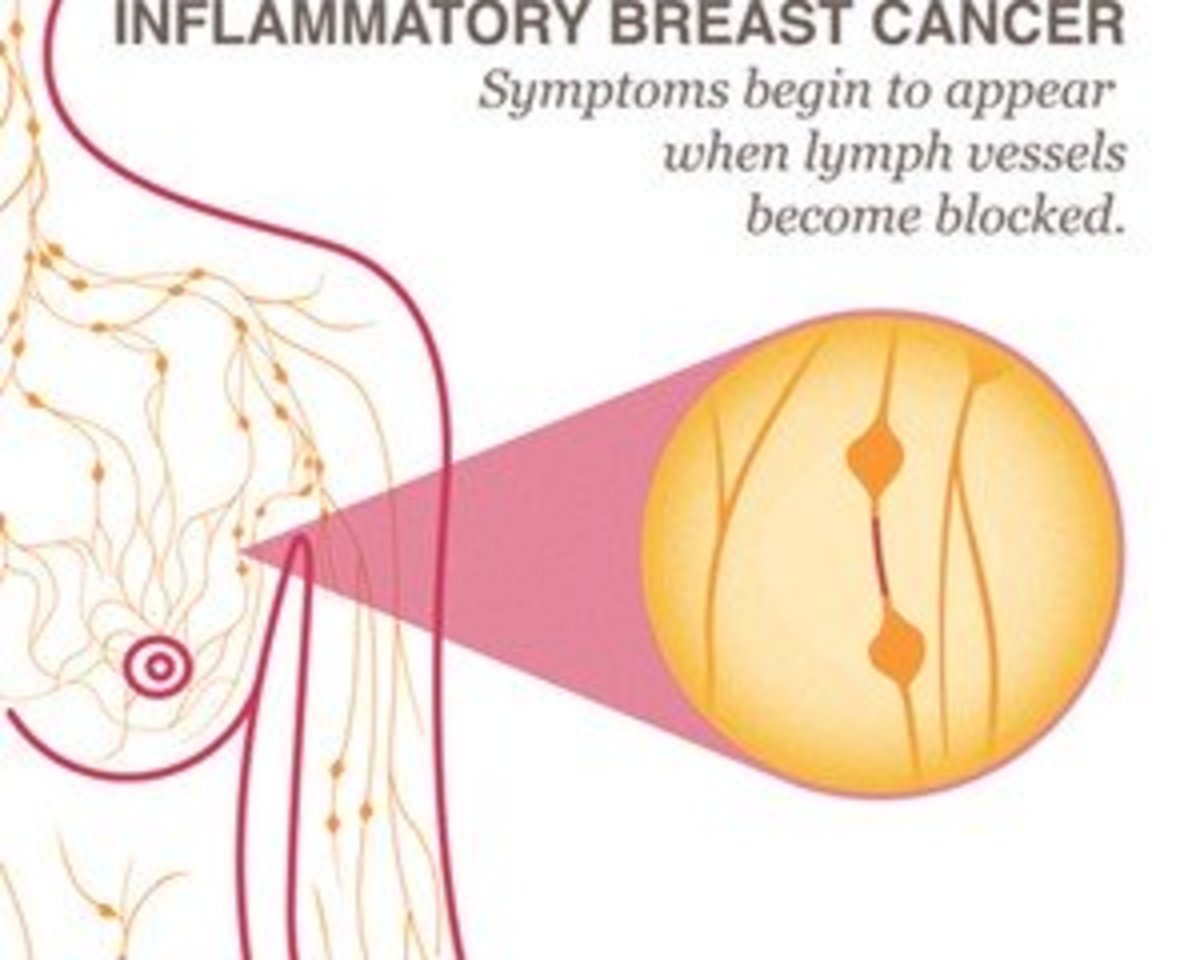How Do You Know Which Charity to Give Your Money to?



How could anyone be so cynical as to find something negative to say about supporting a charity?
Aren’t all efforts to support a good cause equally good?
Well, no.
Some organizations send more of the money they raise to the good cause than others. It is worth taking a, yes, cynical look at the inner workings of a fund raising effort before you lend them your voice, your time, your money, and your professional and personal capital.
The month of October is a case in point as myriad organizations spend the month raising money in the effort to find a cure for breast cancer. The two largest are Susan G. Komen's Race for the Cure and the American Cancer Society's Making Strides Against Breast Cancer.
The American Cancer Society coined the pink ribbon symbol to represent the search for a cure specifically for breast cancer and to encourage those who have survived this disease. They didn’t even trademark or copyright it. The decision was made that the pink ribbon should be shared as far and wide as possible to draw attention to the need to find a cure for this disease. Komen, on the other hand, spends almost a million dollars a year in legal fees protecting their brand (the light pink ribbon and the words "for the cure"). Their spokesperson reportedly told the Huffington Post that legal fees comprise a “very small part” of their budget.
"I think it's important that charities protect their brand, but on the other hand, I don't think the donors' intent in giving their money was to fund a turf war," said Sandra Minuitti, a spokesperson for Charity Navigator, a watch-dog organization on how not-for-profits use the dollars they receive in donations.
No one is surprised when a national business like McDonalds goes to court to sue over the use of their name and images. But intellectual property lawyers like Michael Mercanti say they are surprised by the large number of oppositions Komen has filed against other charities making it difficult for them even to coexist.
Sue Prom, the founder of a small dog sledding fundraiser for breast cancer called "Mush for the Cure" in Grand Marais, Minn., is learning the hard way what it means to use the words, for the cure, that Komen considers their domain. She heard from Komen's lawyers this summer advising her to change the name of her event or face legal proceedings.
"I think it's a shame," Prom said to the Huffington Post. "It's not okay. People don't give their money to the Komen Foundation, and they don't do their races and events so that Komen can squash any other fundraising efforts by individuals. That's not what it's about."
So far, Komen has identified and filed legal trademark oppositions against more than a hundred of these smaller charities, including Kites for a Cure, Par for The Cure, Surfing for a Cure, and Cupcakes for a Cure.
Roxanne Donovan, whose sister runs Kites for a Cure, described their event as a family kite-flying fund raiser with proceeds going for lung cancer research. Donovan reported how intimidated her family was by Komen's big law firm that said they had to drop "cure" from their event's name even though it was being held for an entirely different form of cancer. The family spent their own money purchasing signs, t-shirts and other materials and could not afford to replace them. They also had to spend money on legal fees instead of raising money for the original cause they wanted to support. Kites for a Cure finally settled with Komen, with the help of pro bono lawyers, by adding "for lung cancer" to their name.
National Sponsor of More Birthdays
Have you noticed all the companies that sell products with the pink Komen brand somewhere on them? Bank of America’s drive-thru banking tubes, Yoplait Yogurt, Kentucky Fried Chicken, Ford Motor Company, Hallmark Cards, Princess Cruises. The clear message is that if you buy these products you are contributing to the effort to treat cancer patients or research to find a cure for cancer. Is that actually what you are doing?
Executive Director of Charity Navigator, Trent Stamp, says rarely does more than a penny out of the dollar go to research or treatment. “It’s just great advertising.” The companies that sell these “pinkwashers” products know very well that promoting themselves as supporters of breast cancer awareness gives the public a better perception of them and increases their profits.
Daniel Borochoff, president of the American Institute of Philanthropy, is on record stating that the makers of some pink products donate proceeds only for a limited time. In fact manufacturers usually put a ceiling on the total amount of money that will be donated to Komen.
The breast cancer advocacy organization, Breast Cancer Action, is on record describing October as a public relations campaign that, instead of discussing the causes and prevention of breast cancer, shines a light on awareness only in order to encourage women to get mammograms. The term "pinkwashing" has been used by Breast Cancer Action to describe the actions of companies that manufacture and use chemicals that have been linked with breast cancer while publicly supporting charities focused on curing the disease. Their argument is that more money is spent marketing these campaigns than is donated to the cause.
The problem all this marketing poses for other charities is the fact that Komen is succeeding. They have done such a good job of flooding the market with their brand, they are actually forcing organizations like the American Cancer Society to spend more donation dollars trying to compete for contributors at the loss of dollars going to researchers who are actually trying to work “for the cure.” So when a well-meaning contributor gives their donation dollar to Komen, not only is less of their money going to research, they are raising awareness of the Komen brand. As a result, they are forcing other fund raising charities to spend more of each of their donated dollars on marketing instead of research as well.
And even on an individual basis, we're not talking about small amounts of money. Registration for Komen’s 3-Day Walk for a Cure is $2,300 per registrant. Registration for a Making Strides Walk is $25 in advance or $35 the day of the walk. Last year the Komen three day event raised $3.2 million in Atlanta, Georgia, only one of the many cities where they hold the walk. Making Strides also averages a million dollars a day in the multiple cities where those events are held.
The Susan G. Komen foundation donated no more than 18% of its net revenue to research in fiscal 2012, 17 % in 2011, 19% in 2010, and 21% in 2009.
The bedrock problem created whenever an organization is created solely for the support of funding for a single cancer is the fact that no one knows where the answers are going to come from. Research in one area has frequently discovered the cure for a different form of cancer. The most efficient donation goes to the overall effort to continue to find the cures for cancer, in all its forms, which is actually being done every day. ACS statistics show 25 people are alive each and every day who would not have been alive 25 years ago because of treatments that have been developed through years of research in all areas. In this fight, there is probably not going to be one and only one cure for this insidious disease.
In the name of full disclosure I must include in this hub the fact that I worked for The American Cancer Society for two and a half years. In my defense, in my job I did research on the fundraising efforts in the communities that held ACS events and other not-for-profit efforts, which is where many of the concerns expressed here came from originally. While ACS adapted to the changes that were pressed upon them in the marketplace, all staff was encouraged not to disparage any other organizations. Making Strides adopted the hot pink shade of pink to differentiate themselves from the Komen light pink. (When you see National Football teams flaunting hot pink armbands and towels, you know which charity they support. But nobody will try to convince you that part of your ticket price is going to a charity. The NFL is a sponsor of Making Strides like other corporations that make their own donation in exchange for name recognition by ACS.)
With any charitable donation always find out how they are rated by charity watchdog groups, such as www.givewell.org, and what their administrative percentages are. There must be some overhead expenses for them to exist - but they shouldn't be higher than around 20%.
And finally - thank you for giving to whichever good cause you choose.








